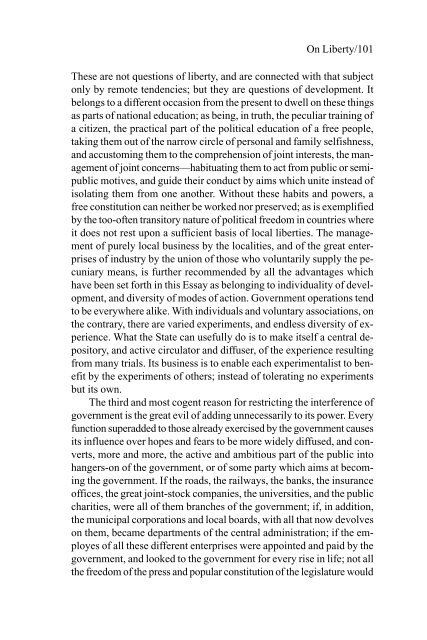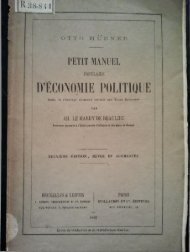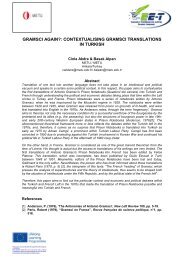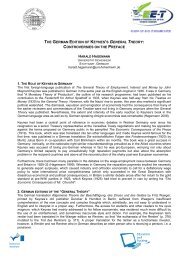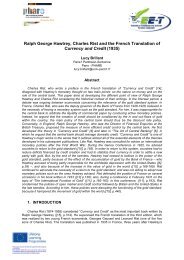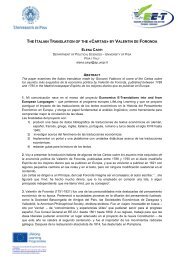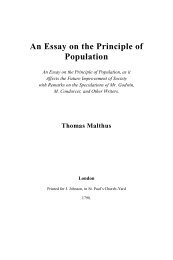On Liberty John Stuart Mill Batoche Books
On Liberty John Stuart Mill Batoche Books
On Liberty John Stuart Mill Batoche Books
Create successful ePaper yourself
Turn your PDF publications into a flip-book with our unique Google optimized e-Paper software.
<strong>On</strong> <strong>Liberty</strong>/101These are not questions of liberty, and are connected with that subjectonly by remote tendencies; but they are questions of development. Itbelongs to a different occasion from the present to dwell on these thingsas parts of national education; as being, in truth, the peculiar training ofa citizen, the practical part of the political education of a free people,taking them out of the narrow circle of personal and family selfishness,and accustoming them to the comprehension of joint interests, the managementof joint concerns—habituating them to act from public or semipublicmotives, and guide their conduct by aims which unite instead ofisolating them from one another. Without these habits and powers, afree constitution can neither be worked nor preserved; as is exemplifiedby the too-often transitory nature of political freedom in countries whereit does not rest upon a sufficient basis of local liberties. The managementof purely local business by the localities, and of the great enterprisesof industry by the union of those who voluntarily supply the pecuniarymeans, is further recommended by all the advantages whichhave been set forth in this Essay as belonging to individuality of development,and diversity of modes of action. Government operations tendto be everywhere alike. With individuals and voluntary associations, onthe contrary, there are varied experiments, and endless diversity of experience.What the State can usefully do is to make itself a central depository,and active circulator and diffuser, of the experience resultingfrom many trials. Its business is to enable each experimentalist to benefitby the experiments of others; instead of tolerating no experimentsbut its own.The third and most cogent reason for restricting the interference ofgovernment is the great evil of adding unnecessarily to its power. Everyfunction superadded to those already exercised by the government causesits influence over hopes and fears to be more widely diffused, and converts,more and more, the active and ambitious part of the public intohangers-on of the government, or of some party which aims at becomingthe government. If the roads, the railways, the banks, the insuranceoffices, the great joint-stock companies, the universities, and the publiccharities, were all of them branches of the government; if, in addition,the municipal corporations and local boards, with all that now devolveson them, became departments of the central administration; if the employesof all these different enterprises were appointed and paid by thegovernment, and looked to the government for every rise in life; not allthe freedom of the press and popular constitution of the legislature would


